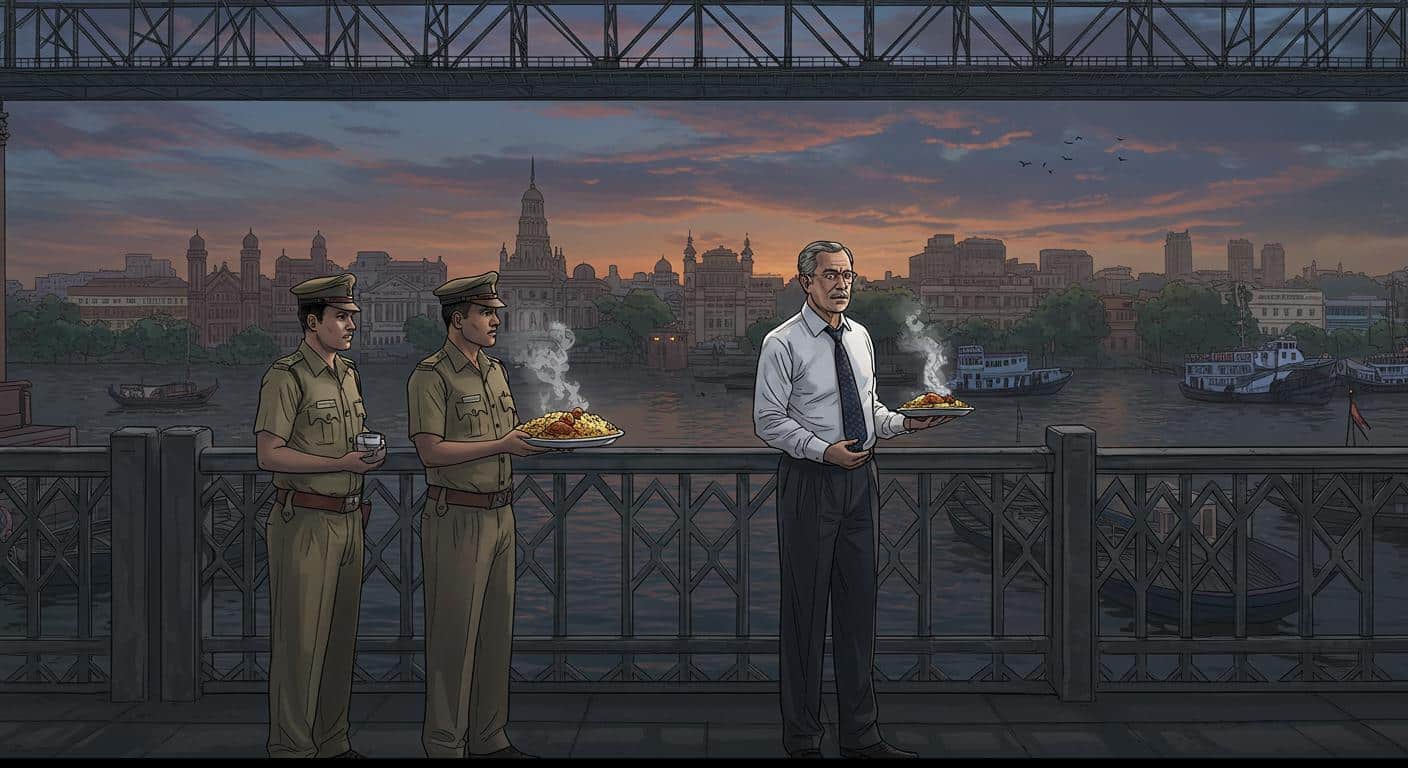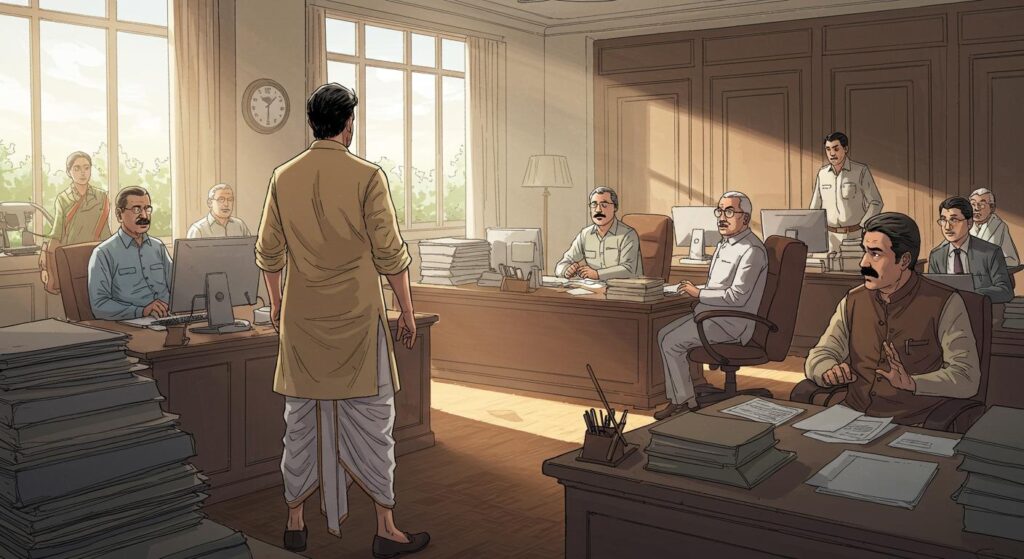Some stories from the news read almost like modern fables: a little strange, somewhat comforting, and revealing in unexpectedly human ways. The headline of a PTI report recently supplied one such tale. According to the article’s title, a Kolkata businessman, reportedly in distress, climbed a bridge threatening suicide, only for police to coax him down—not with argument, but with the promise of biryani and a job.
When Reason Fails, Bring in the Rice
From the information given in the PTI headline, it appears that traditional negotiation efforts were either insufficient or simply bypassed in favor of an unorthodox approach. Police, faced with a tense situation atop a bridge, evidently pitched to the man the prospect of employment, but crucially, also dangled the bait of biryani—a regional staple beloved for its comforting richness.
There’s a peculiar beauty to this improvised crisis management. While the article’s specific details aren’t available, the headline makes it clear that biryani—aromatic, savory, and universally appreciated in South Asia—became the centerpiece of the police’s appeal. One imagines that the offer wasn’t just about sustenance, but about comfort, warmth, and maybe even a fleeting reminder of more ordinary, hopeful days.
The Practical Psychology of Comfort Food
Even without the finer narrative threads, the scenario suggested by PTI’s headline invites reflection. Comfort food’s influence in our lives is well-documented, though seldom does it take such literal center stage in high-stakes negotiation. What is it about biryani—a dish that fills rooms with spices and memories alike—that can cut through hopelessness, even momentarily?
Could it be that our connection to certain flavors and smells runs deeper than reason alone? Or, more simply, perhaps the impulse for a good meal persists even when everything else feels adrift. It’s difficult not to wonder whether biryani should now be issued as standard equipment for crisis negotiators everywhere.
The Fine Line Between Absurd and Brilliant
There’s always a temptation to file tales like this away with the bizarre trivia and footnotes of life. Yet, even what little the headline reveals points to a kind of impromptu wisdom. The authorities, whether through inspiration or desperation, tapped into something deeply human: the reassuring power of simple gestures and familiar comforts.
While fuller details of the incident are unavailable from the provided source, the outcome implied—that biryani and a job offer did what hours of reason could not—feels telling. It’s a small triumph of empathy (and gastronomy) over procedure, of ingenuity over escalation.
Reflection: Saffron, Spices, and a Dash of Humanity
Perhaps there’s no glib lesson to be drawn, save for the reminder that the most persuasive crisis tools aren’t always found in official manuals. The line between the absurd and the inspired often blurs, especially when something as ordinary—and extraordinary—as biryani is on the table. Is it a testament to the enduring lure of comfort food, or does it say something larger about what people in distress ultimately hope to find?
Now, whether the craving is sympathy or saffron rice, I leave to you. The persuasive power of biryani, it seems, is now a matter of public record.







